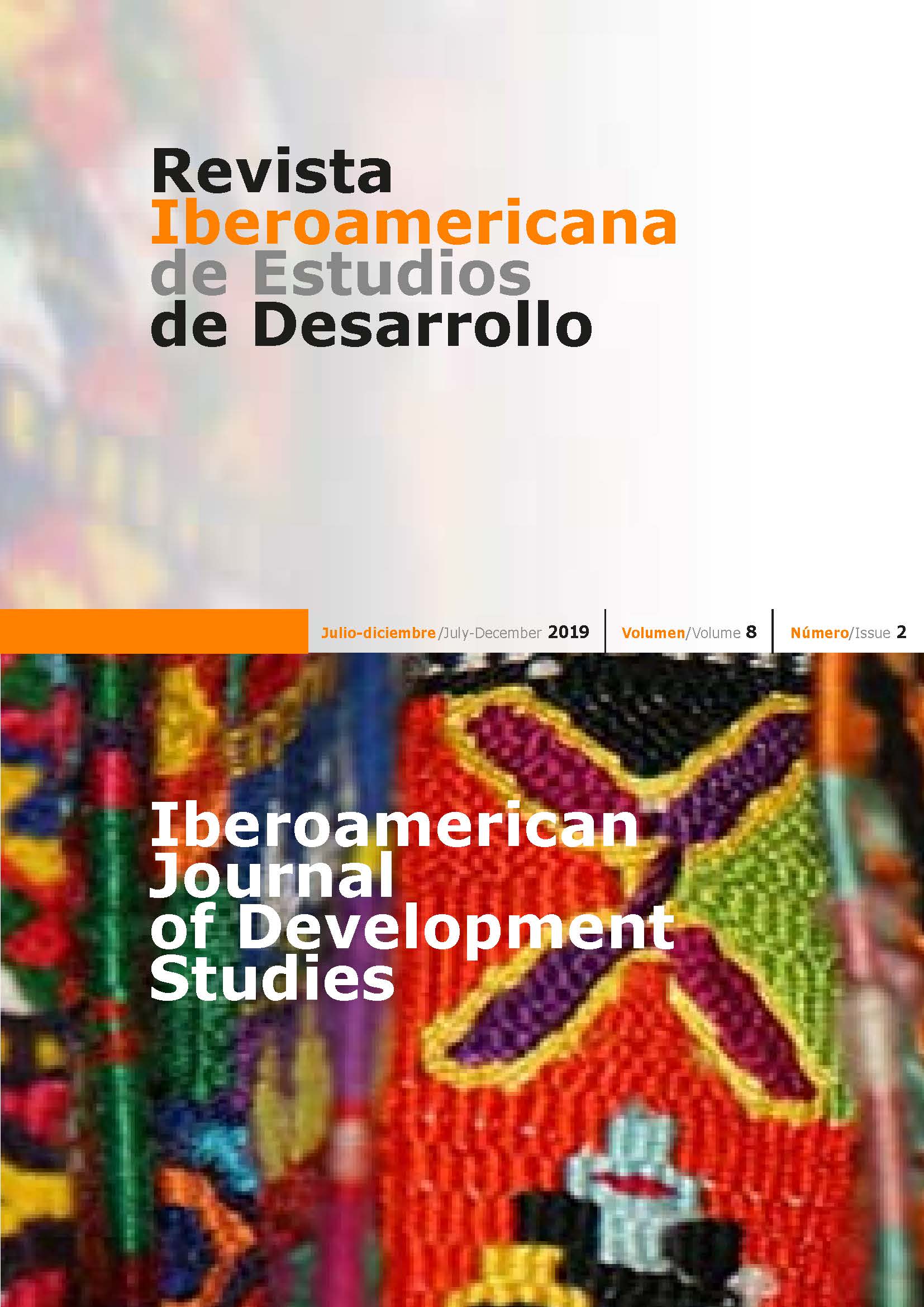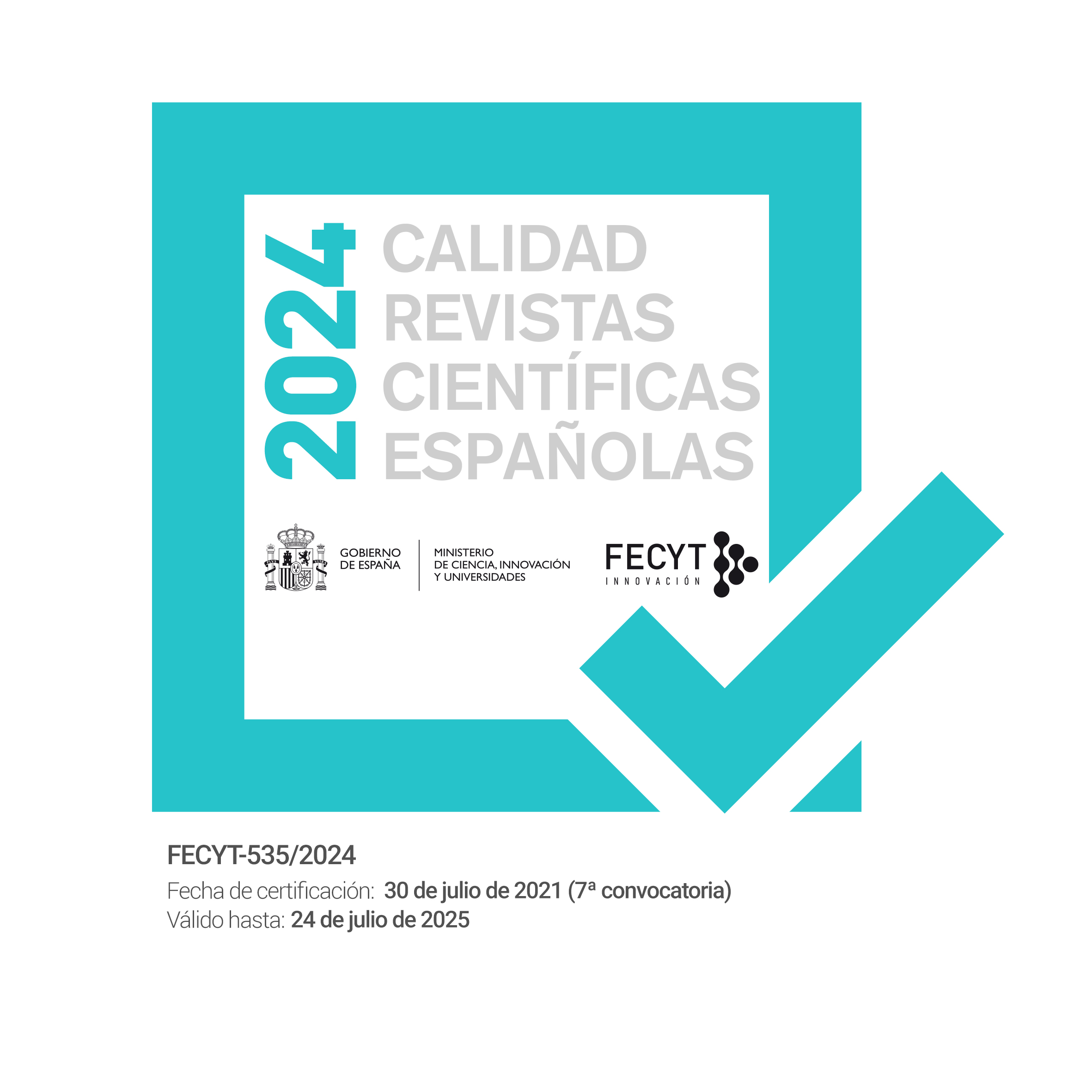The impact of international volunteers on education quality in developing countries ‒ An assessment of organisations’ volunteer recruitment and management practices
Ganador del IV Premio REEDES (Red Española de Estudios del Desarrollo) para Jóvenes Investigadores 2018
DOI:
https://doi.org/10.26754/ojs_ried/ijds.421Palabras clave:
voluntariado internacional, reclutamiento y gestión de voluntarios, calidad de la educación, exclusión oculta, voluntariado Norte-SurResumen
Recientemente, las organizaciones de voluntariado y servicio internacional (IVS) se han expandido drásticamente en tamaño, alcance y variedad. A pesar de que el voluntariado goza de un alto reconocimiento social, sabemos poco acerca del impacto real que este tiene en las comunidades anfitrionas. Mediante el modelo conceptual de impactos del IVS de Sherraden et al. (2008), evalúo el impacto potencial del IVS, explorando los efectos de los factores individuales e institucionales sobre la calidad del servicio educativo que ofrece el voluntario. Además de analizar la bibliografía sobre IVS y la calidad educativa, se reunieron datos cualitativos sobre las prácticas de reclutamiento y gestión de voluntarios de 12 organizaciones emisoras. Mientras que el análisis demuestra la importancia de la cualificación y experiencia de los voluntarios, se observa a menudo su negligencia en las prácticas de reclutamiento. Sin embargo, diversas limitaciones pueden ser compensadas. Asimismo, se encontraron patrones entre los cuatro tipos de organizaciones.
Descargas
Citas
ARMSTRONG P. (2015). The impact of teacher characteristics on student performance: An analysis using hierarchical linear modelling. South African Journal of Childhood Education 5(2):123-145.
BROOK J, MISSINGHAM B, HOCKING R, FIFER D (2007). The right person for the job: International volunteering and the Australian employment market. Monash Institute for the Study of Global Movements & Australian Volunteers International, Monash University.
BROWN S (2005). Travelling with a purpose: understanding the motives and benefits of volunteer vacationers. Current Issues in Tourism 8(6):479-496.
BUTCHER J (2013). Ethical Tourism: Personal Qualities, Political Issues. Association of American Geographers, Los Angeles (CA).
BUTCHER J, SMITH P (2010). «Making a Difference»: Volunteer Tourism and Development. Tourism Recreation Research. Vol. 35(1):27-36.
CALLANAN M, THOMAS S (2005). Volunteer tourism: Deconstructing volunteer activities within a dynamic environment. In: Novelli M (ed.). Niche tourism: Contemporary issues, trends and cases. Elsevier, Wallington, pp. 183-200.
CHEN J (2017). Understanding development impact in international development volunteering: a relational approach. The Geographical Journal.
CHUDGAR A, CHANDRA M, RAZZAQUE A (2014). Alternative forms of teacher hiring in developing countries and its implications: A review of literature. Teaching and Teacher Education 37:150-161.
COGHLAN A (2007). Towards an integrated image-based typology of volunteer tourism Organisations. Journal of Sustainable Tourism 15(3):267-287.
COMHLÁMH (2013). Comhlámh’s Code of Good Practice (CoGP). Dublin. https://forum-ids.org/2013/05/code-of-practice-for-sending-organsations/ , accessed February 27, 2019.
DARLING-HAMMOND L (2000). Teacher quality and student achievement: A review of state policy evidence. Education Policy Analysis Archives 8(1).
DARLING-HAMMOND L, HOLTZMANN DJ, GATLIN SJ, VASQUEZ J (2005). Does teacher preparation matter? Evidence about teacher certification, teach for America, and teacher effectiveness. Education Policy Analysis Archives 13(42).
DAVID EJR, OKAZAKI S (2006). Colonial mentality: A review and recommendation for Filipino American psychology. Cultural Diversity and Ethnic Minority Psychology 12(1):1-16.
DEUTCHMAN A (1966). Volunteers in the Field: Teaching. Annals of the American Academy of Political and Social Science, May 1, 365(1):72-82. Sage Publications.
DEVEREUX P (2006). International volunteers for development: Pursuing capacity development and sustainability with solidarity. Paper presented at the International Conference of the International Society for Third Sector Research, Bangkok.
ELLIOTT D (2008). Voluntourism. Condé Nast Traveler. http://www.cntraveler.com/stories/2008-04-14/voluntourism , accessed February 1, 2019.
ELLIS CF (2003). Participatory environmental research in tourism ‒ a global view. Tourism Recreation Research 28(3):45-55.
FARNDALE AC (2009). Volunteer Teaching in Kenya: The Inspiring, Challenging and Foreign Experience of a Westerner. The International Journal of Learning. Vol. 16:8.
GEUDENS T, COSTANZO S, HOFMANN P, AMORIM L, PAVLOVOVA L (2013). T-KIT International Voluntary Service, Council of Europe Publishing, Strasbourg.
GUINEY T (2015). Orphanage tourism: The need for protection and policy. In: Risk, Protection, Provision and Policy, Geographies of Children and Young People 12:1-21.
GUTTENTAG D (2009). The possible negative impacts of volunteer tourism. International Journal of Tourism Research 11:537-551.
HUTNYK J (1996). The Rumour of Calcutta: Tourism, Charity and the Poverty of Representation. London. Zed Books.
INVESTING IN VOLUNTEERS IIV (2018). Investing in Volunteers Quality Standard: For organisations that involve volunteers. https://iiv.investinginvolunteers.org.uk/, accessed February 1, 2019.
IVHQ (2017): Our Impact. https://www.volunteerhq.org/our-impact/, February 1, 2019.
KEESBURY J (2003). The Value of International Volunteerism A Review of Literature on international Volunteer-Sending Programs. USAID Development Information Services.
KUMARAN M, PAPPAS J (2012). Managing Voluntourism. The Volunteer Management Handbook: Leadership Strategies for Success, 2nd Ed. Digital E.
LASKER JN (2016). Hoping to Help: The Promises and Pitfalls of Global Health Volunteering. Cornell University Press, New York.
LOISEAU B, SIBBALD R, RAMAN SA, DARREN B, LOH LC, DIMARAS H (2016). Perceptions of the role of short-term volunteerism in international development: Views from volunteers, local hosts, and community members. Journal of Tropical Medicine. Article ID 2569732.
LORIMER J (2009). International conservation volunteering from the UK: what does it contribute? Fauna & Flora International 43(3):352-360.
LOUGH BJ (2009). Principles of effective practice in international social work field placements. Journal of Social Work Education 45(3):467-480.
LOUGH BJ (2013). International volunteering from the United States between 2004 and 2012. Center for Social Development, St. Louis (MO).
LOUGH BJ (2015). The evolution of international volunteering. Presentation at the International Volunteer Service Exchange Conference, 12-13 October, Beijing (China). Published by United Nations Volunteers (UNV) programme, Bonn (Germany).
LOUGH BJ (2016). Reciprocity in international volunteer cooperation. Fredskorpset, Oslo.
LOUGH BJ, TIESSEN R (2016). Researching effective practices in international volunteering: Initial report of findings, Part 1, Univariate Descriptive Statistics. International Forum for Volunteering in Development. Universitiy of Ottawa, University of Illinois, Urbana-Champaign.
LOUGH BJ, TIESSEN R (2018). How do International Volunteering Characteristics Influence Outcomes? Perspectives from Partner Organizations. VOLUNTAS: International Journal of Voluntary and Nonprofit Organizations. Vol. 29:104.
LOUGH BJ, TIESSEN R, LASKER JN (2018). Effective practices of international volunteering for health: perspectives from partner organizations. Globalization and Health 14:11.
LOUGH BJ, MCBRIDE AM, SHERRADEN MS (2009). Perceived Effects of International Volunteering: Reports from Alumni. CSD Research Report 08-06. Washington University, St. Louis.
LOUGH BJ, MOORE A, SHERRADEN MS, O’HARA K (2011). Capacity building contributions of short-term international volunteers. Journal of Community Practice 19(2):120-137.
LUPOLI CA, MORSE WC (2014). Assessing the Local Impacts of Volunteer Tourism: Comparing Two Unique Approaches to Indicator Development. Soc Indic Res 120:577-600.
LYONS K, WEARING S (2008). All for a good cause? The blurred boundaries of volunteering and tourism. In: Journeys of Discovery in Volunteer Tourism. CABI Publishing, Cambridge (MA), pp. 147-154.
MCBRIDE AM, LOUGH B (2007). Access to international volunteerism: Analysis of the current population survey. Working Paper, Center for Social Development, St. Louis.
MCBRIDE AM, BENITEZ C, SHERRADEN M (2003). The forms and nature of civic service: A global assessment, research report. Center for Social Development. Washington University, St. Louis.
MCCALL D, ILTIS AS (2014). Health care voluntourism: addressing ethical concerns of undergraduate student participation in global health volunteer work. HealthCare Ethics Committee (HCE) Forum 26(4):285-297.
MCGEHEE NG (2014). Volunteer tourism: Evolution, issues and futures. Journal of Sustainable Tourism 22(6):847-854.
MCGEHEE N, ANDERECK K (2008). «Pettin’ the critters»: exploring the complex relationship between volunteers and the voluntoured in McDowell County, WV, USA and Tijuana, Mexico. In: Wearing S, Lyons K (eds.). Journeys of discovery in volunteer tourism: International case study perspectives. Oxfordshire (UK).
MCGLOIN C, GEORGEOU N (2016). «Looks good on your CV»: The sociology of voluntourism recruitment in higher education. Journal of Sociology 52(2):403-417.
MEASHAM TG, BARNETT GB (2008). Environmental volunteering: motivations, modes and outcomes. Australian Geographer 39(4):537-552.
MOSTAFANEZHAD, M. (2014). Volunteer tourism and the popular humanitarian gaze. Geoforum, 54, 111-118. DOI: 10.1016/j.geoforum.2014.04.004
MURALIDHARAN K, SHETH K (2014). Bridging Education Gender Gaps in Developing Countries: The Role of Female Teachers. Journal of Human Resources.
OFOEGBU FI (2004). Teacher motivation: a factor for classroom effectiveness and school improvement in Nigeria. College Student Journal. Vol. 38 1:81+. Academic OneFile.
ONG F, PEARLMAN M, LOCKSTONE-BINNEY L (2011). An examination of non-for-profit volunteer tourism sending organisations’ guiding considerations that influence volunteer tourism programmes. World Leisure Journal 53(4):296-311.
PALACIOS CM (2010). Volunteer tourism, development and education in a postcolonial world: conceiving global connections beyond aid. Journal of Sustainable Tourism. 18(7):861-878.
PEACE CORPS (2018). Fast facts. https://www.peacecorps.gov/news/fast-facts/ . Accessed February 1, 2019.
PMGY. English Teaching Volunteer Projects. https://www.planmygapyear.co.uk/teaching-volunteer-abroad-projects , accessed February 1, 2019.
POWELL S, BRATOVIĆ E (2007). The impact of long-term youth voluntary service in Europe: a review of published and unpublished research studies. Association of Voluntary Service Organisations, Final Report. AVSO, Brussels.
PROJECTS ABROAD (2015). Global Impact Report 2015. UK. https://docs.projects-abroad.ie/uk/global-impact-report/projects-abroad-global-impact-report.pdf , accessed February 27, 2019.
PUNAKS M, FEIT K (2014). Orphanage voluntourism in Nepal and its links to the displacement and unnecessary institutionalisation of children. Institutionalised Children Explorations and Beyond 1(2):179-192.
PYCROFT S (2016). Teaching abroad: «Volunteers had little educational benefit to the kids». The Guardian. Wednesday, January 13.
RAYMOND E, HALL CM (2008). The development of cross-cultural (mis)understanding through volunteer tourism. Journal of Sustainable Tourism 16(5):530-543.
RICE JK (2003). Teacher quality: Understanding the effectiveness of teacher attributes. Economic Policy Institute.
RONFELDT M, LOEB S, WYCKOFF J (2013). How Teacher Turnover Harms Student Achievement. American Educational Research Journal, Vol. 50:1.
ROSE P (2009). NGO provision of basic education: alternative or complementary service delivery to support access to the excluded? Compare: A Journal of Comparative and International Education 39(2):219-233.
SAVE THE CHILDREN INTERNATIONAL (2013). Ending the hidden exclusion ‒ Learning and equity in education post-2015. https://resourcecentre.savethechildren.net/library/ending-hidden-exclusion-learning-and-equity-education-post-2015, accessed February 27, 2019.
SHERRADEN MS, LOUGH B, MCBRIDE AM (2008). Effects of international volunteering and service: Individual and institutional predictors. Voluntas 19:395-421.
SHERRADEN M, STRINGHAM J, SOW S, MCBRIDE A (2006). The forms and structure of international voluntary service. Voluntas 17:163-180.
SIMPSON K (2004). «Doing Development»: The Gap Year, Volunteer-Tourists and a Popular Practice of Development. Journal of International Development 16:681-692.
SIMPSON K (2005). Dropping out or Signing Up? The Professionalisation of Youth Travel. Antipode 37(3):447-469.
SIN HJ (2009). Volunteer tourism – «Involve me and I will learn»? Annals of Tourism Research. Vol. 36 3: 480-501.
STRONG A (2016). Volunteerism or Voluntourism? A case of study of NGO motivations & success in South Africa. Honors College Theses. 5. Murray State University.
STRUCTURE OF OPERATIONAL SUPPORT (SOS) (2000). The sending organizations perspectives. SOS, European Voluntary Service, Brussels.
TOURISM RESEARCH AND MARKETING GROUP (2008). Volunteer tourism: A global analysis. Atlas, Barcelona.
UNESCO (2016). Teachers and educational quality: Monitoring global needs for 2015. Institute of Statistics, Montreal Available. http://www.uis.unesco.org , accessed July 29, 2017.
UNV (2011). State of the World’s Volunteerism Report 2011: Universal Values for Global Wellbeing. UNV (UK).
VSO (2016). The Role of Volunteers in International Development. Position Paper. Voluntary Service Overseas, London. https://forum-ids.org/2003/09/the-role-of-the-volunteer , accessed February 27, 2019.
WALLACE LJ (2012). Does pre-medical «voluntourism» improve the health of communities abroad? Journal of Global Health Perspectives. August 1, Edition 1.
WEARING S (2001). Volunteer Tourism: Experiences That Make a Difference. CAB International, Wallingford.
WEARING S, MCGEHEE NG (2013). Volunteer tourism: A review. Tourism Management 38:120-130.
WHITE P, CLIFFE L (2000). Matching response to context in complex political emergencies: «Relief», «development», «peace-building» or something in-between? Disasters 24(4):314-342.
ZHANG D (2008). The Effects of Teacher Education Level, Teaching Experience, And Teaching Behaviors On Student Science Achievement. Graduate Stuides, Utah State University.
ZHOU H., SHANG X (2011). Short-Term Volunteer Teachers in Rural China: Challenges and Needs, Front. Educ. China 2011 6(3):571-601.
*****************************************
2. Web addresses of the IVS organisations
WAYDEVELOPMENT (2WD). http://www.2waydevelopment.com/, accessed June 1, 2018.
AUSTRALIAN VOLUNTEERS INTERNATIONAL (AVI). https://www.avi.org.au/, accessed February 27, 2019.
GLOBAL VISION INTERNATIONAL (GVI). http://www.gviworld.com/, accessed February 27, 2019.
GLOBAL VOLUNTEERS (GV). https://globalvolunteers.org/ , accessed February 27, 2019.
INTERNATIONAL VOLUNTEER HQ (IVHQ). https://www.volunteerhq.org/, accessed February 27, 2019.
KAYA RESPONSIBLE TRAVEL (KRT). https://www.kayavolunteer.com/, accessed: February 27, 2019.
PEACE CORPS (PC). https://www.peacecorps.gov/, accessed: February 27, 2019.
PLAN MY GAP YEAR (PMGY). https://www.planmygapyear.co.uk/ , accessed February 27, 2019.
PROJECTS ABROAD (PA). https://www.projects-abroad.net/, accessed February 27, 2019.
TEACHERS2TEACHERS GLOBAL (T2TGlobal). https://t2tglobal.org/, accessed February 27, 2019.
Descargas
Publicado
Cómo citar
Número
Sección
Licencia
Derechos de autor 2019 Estefanie Hechenberger

Esta obra está bajo una licencia internacional Creative Commons Atribución-NoComercial-SinDerivadas 4.0.






